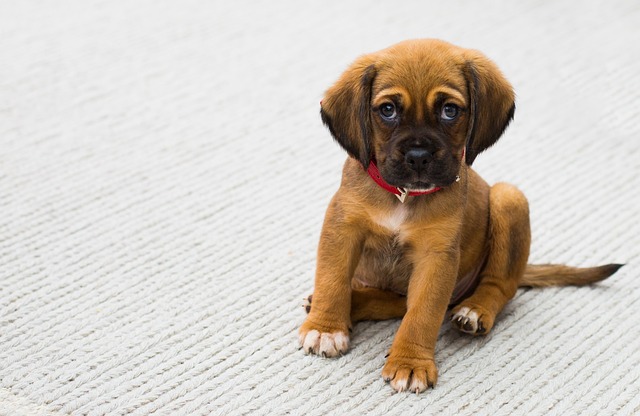
How do i train my dog to be obedient?
Watching your dog dart across the park ignoring your calls isn’t just frustrating—it can put them at risk near busy streets or public spaces.
Puppies explore the world with their mouths—it’s totally normal, but those tiny teeth can hurt, and letting it become a habit isn’t good for anyone. The key is to start gently guiding them from day one, before nipping turns into something more serious. Most pups don’t mean to be aggressive; they’re just playing, teething, or trying to get your attention. Your job is to show them what’s okay and what’s not, in a way they can understand.
First, when your puppy nips, try a simple “ow!” like you’re hurt. Dogs learn from each other this way—if one playmate bites too hard, the other yelps and stops. It helps them get the message that biting isn’t part of fun play. Right after, pull your hand back and pause the game for a few seconds. Let them see that biting makes the fun stop. Then, offer a chew toy instead. Give them something they can sink their teeth into, and praise them when they take it. That way, they start to link toys with biting, not hands.
Consistency matters more than anything. Everyone in the house needs to follow the same rules. If one person laughs when the puppy nips but another scolds, it’ll confuse them. Stick to the “yelp and pause” method, and always replace your hand with a toy. Also, make sure they’re getting enough exercise and playtime. A bored or overtired puppy is more likely to nip out of frustration. Short walks, interactive games, and plenty of naps can cut down on those extra bites.
 Teething can make puppies want to bite even more—their gums hurt, and chewing helps. Keep a variety of safe chew toys around, maybe even some that can be frozen to soothe sore gums. When you see them starting to mouth your fingers, calmly swap in a toy. Never hit or yell at them for biting; that can make them scared or defensive, which might lead to more problems. Positive reinforcement works way better—smiles, kind words, and even a small treat when they choose a toy over your hand goes a long way.
Teething can make puppies want to bite even more—their gums hurt, and chewing helps. Keep a variety of safe chew toys around, maybe even some that can be frozen to soothe sore gums. When you see them starting to mouth your fingers, calmly swap in a toy. Never hit or yell at them for biting; that can make them scared or defensive, which might lead to more problems. Positive reinforcement works way better—smiles, kind words, and even a small treat when they choose a toy over your hand goes a long way.
It’s also smart to be aware of local rules and guidelines around dog behavior. Many places have laws that expect dogs to be well-behaved in public, and a puppy that grows up biting could run into trouble later. Socializing them with other dogs and people early can help too. When they play with other pups, they’ll learn bite inhibition naturally—if they bite too hard, the other dog will let them know. Just make sure those playdates are supervised and positive.
Over time, with patience, your puppy will learn that hands are for petting, not biting. It won’t happen overnight, and there might be setbacks, especially during teething phases. But stay calm, keep reinforcing the good behavior, and remember that this is all part of helping them grow into a happy, well-mannered dog. Before you know it, those nippy days will be a memory, and you’ll have a loving companion who knows just how to show affection without the ouch.

Watching your dog dart across the park ignoring your calls isn’t just frustrating—it can put them at risk near busy streets or public spaces.

New puppy owners often find themselves rushing to clean up accidents before they set in, and that’s where puppy pad training becomes a game-changer.

If you've noticed your dog's waistline disappearing and your veterinarian has mentioned those few extra pounds, your first instinct might be to simply reduce the amount of food in their bowl.

Training a dog to use a designated spot indoors isn’t as daunting as many new owners fear, but it does take consistency and an understanding of your pet’s needs.

That moment of dread on a walk is all too familiar for many new dog owners. You see another dog approaching down the sidewalk of your neighborhood

If the sight of another dog on your neighborhood walk makes your heart sink as your own dog erupts into a frenzy of barking and lunging, you're not alone.